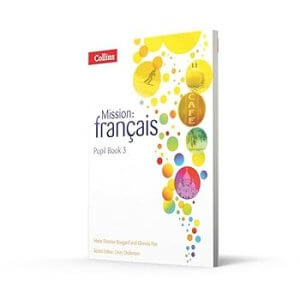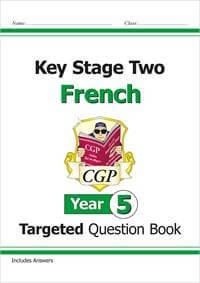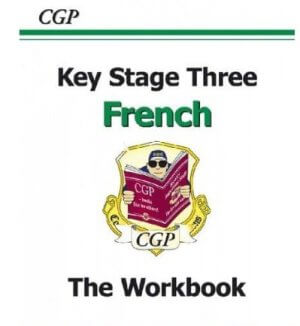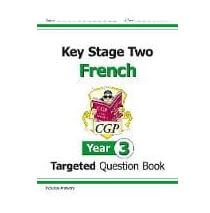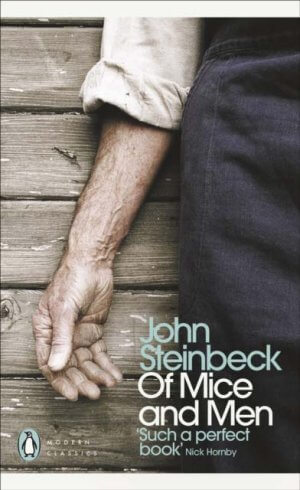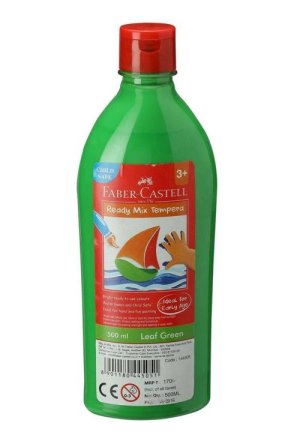-
-
-
-
CGP Key Stage 3 French the Wkbk FHW32
Rated 0 out of 5KSh1,850A whole book of questions, on all the topics and grammar for KS3 French. Just right to be used for practice questions in class or for homework, it’s useful on its own, and there’s also the matching Study Guide which follows it page for page. Contains answers too! -
CGP KS2 French Year 3 Targeted Question Bk F3Q21
Rated 0 out of 5KSh1,650KS2 French practice has never been better. This Yearly Workbook is targeted specifically at Year 3 pupils looking to improve their French. It’s crammed with useful vocabulary and study notes, alongside heaps of skill-boosting activities and questions, all set at the perfect difficulty for pupils aged 7-8. Self-assessment boxes are included to track pupils’ progress. Answers to all questions can be found at the back of the book. Pair this book with CGP’s FREE KS2 French Vocab player for an unbeatable combo that’ll really step up your pupils’ learning. It’s loaded with vocabulary all pronounced properly by native French speakers, and it’s 100% free. Just follow the link in the book for more info. -
Oxford English Dictionary for Schools
Rated 0 out of 5KSh2,400The best secondary school dictionary for all-round language support.Easy to use clear signposting to find the words you want fast. Easy to understand real example sentences from the best books show you how it’s done. Succeed in your exams includes all curriculum words for a secondary level to achieve success at home and at school. Go online for lots of FREE downloadable games, puzzles, activities, and much more. This is a Soft Back book -
-
Art Smock Middle Size with 3 Roomy Pocket,Water Resistant Childrens Painting Apron for Kids 6 to 10 Years
Rated 0 out of 5KSh1,200100% Polyester Size(approx):17 W x 22 L with 7.8 ties (43 cm x 56 cm with 20cm long ties), suitable for children aged 5 to 10 years Material: Made of smooth, water resistant polyester material, water resistant and proof stain, strong, durable and reusable, are applied in Kitchen, Classroom, community event, crafts and art painting activity, birthday party Apron Various Colors: Red, yellow, blue, 3 different bright colors, each color has 1 piece With 3 Pockets: Extra 3 storage pockets for children to carry brushes and other small items, more convenient Avoid Residues: To avoid painting or leaving other unwanted residue on kids clothing, suitable for cleaning, serving, painting and crafting, etc. And the lightweight fabric is easy to care for and instantly re-usable -
11mm Hot Melt Glue Gun
Rated 0 out of 5KSh3,100- Glue Gun For Application Of Hot Melt Adhesive
- Compact And Easy To Use, For Crafts, Hobbies And Minor Household Repairs
- Ultra Strong And Fast Setting
-
-
Ready Mix Tempera Paint 500ml Light Green
Rated 0 out of 5KSh900Ready-mix tempera are ready to use paints in bright playful colors specially developed for early age. Use of ready-mix tempera is ideal for motor skills and sensory development in early childhood. Ready-mix tempera also offers expressions of creativity through coloring and painting activities, giving young children a sense of achievement.


